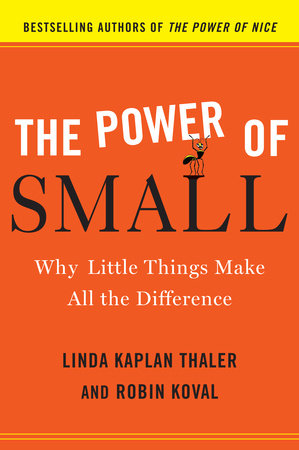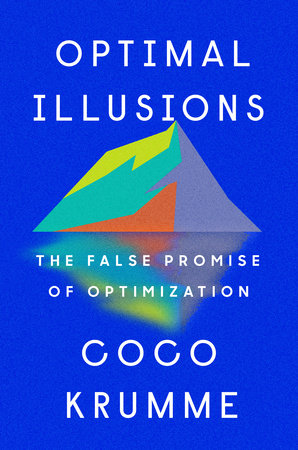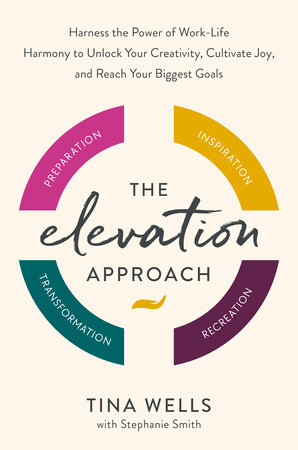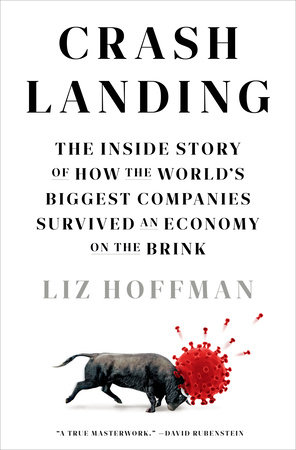Quick Summary
One Sentence Summary
“The Power of Small” by Linda Kaplan Thaler and Robin Koval emphasizes how small actions and decisions can lead to significant impacts in life and business.
Big Idea
The central thesis of the book is that in a world obsessed with big ideas and grand gestures, it’s often the small, seemingly insignificant details and actions that can make the most profound difference in personal and professional success.
Five Key Ideas
- Attention to Detail: The importance of paying attention to the little things that others might overlook.
- Small Gestures: How tiny acts of kindness or thoughtfulness can build stronger relationships and open up opportunities.
- Incremental Progress: The power of making small, consistent steps towards a larger goal.
- Mindful Communication: The impact of small words and subtle language choices on effective communication.
- Overcoming Overwhelm: Using small, manageable tasks to overcome feelings of overwhelm and tackle large projects.
Actionable Advice
- Implement the “Five-Minute Favor”: every day, do a small favor for someone without expecting anything in return.
- Break down big goals into small, actionable steps to avoid feeling overwhelmed.
- Pay attention to your language and small gestures in communication, as they can significantly impact your relationships and career.
About the Authors
Linda Kaplan Thaler and Robin Koval are accomplished advertising professionals and authors. Thaler is the CEO and Chief Creative Officer of The Kaplan Thaler Group, while Koval is the President. They have co-authored several books, including “The Power of Nice”.
Read Next
- “The Power of Nice” by Linda Kaplan Thaler and Robin Koval, for further insights into how kindness can be a powerful tool in business.
- “Atomic Habits” by James Clear, for a deeper understanding of how small habits can lead to significant life changes.
- “Make Your Bed: Little Things That Can Change Your Life…And Maybe the World” by Admiral William H. McRaven, for more on the impact of small, disciplined actions.
In Depth
Attention to Detail
In “The Power of Small,” the authors stress the importance of attention to detail. This key idea revolves around noticing and acting on the little things that often go unnoticed. It’s about precision, care, and the understanding that small elements can make a big difference.
One detailed example from the book highlights the story of a woman who meticulously prepared for a job interview. She researched the company’s history, knew their recent projects, and even learned about the interviewer’s background. Her attention to small details made a strong impression and eventually landed her the job.
The authors quote, “It’s often the smallest actions and gestures that can have profound, long-term effects on our careers and personal lives.” This encapsulates the essence of this key idea. Small actions, like remembering a colleague’s birthday or meticulously proofreading a report, can have far-reaching impacts.
In my experience, attention to detail is crucial. Working in project management, I’ve seen how overlooking small details can lead to bigger problems. A minor error in a report or missing a small client request can spiral into significant issues, affecting trust and project outcomes.
Attention to detail also extends beyond professional life. In personal interactions, noticing and remembering small details about others can build deeper connections. It’s about listening carefully and showing that you value the person enough to remember the small things about them.
However, it’s essential to balance attention to detail with the bigger picture. Being too focused on minutiae can lead to micromanagement or missing out on broader opportunities. The trick is to recognize which details matter and can make a difference.
In summary, attention to detail is a powerful tool. It’s about noticing, caring, and acting on the little things that can lead to significant impacts. Whether in personal or professional settings, this approach can build trust, improve quality, and create lasting impressions.
Small Gestures
Small gestures can be mighty. Thaler and Koval emphasize this in “The Power of Small.” It’s about the power of tiny acts of kindness or consideration and their disproportionate impact.
The book shares an example of a CEO who wrote handwritten thank-you notes to employees. These notes weren’t grand gestures, but they made employees feel valued and seen. This simple act boosted morale and loyalty significantly.
A quote from the book underscores this idea: “Even the smallest tokens of appreciation can transform relationships and build bridges.”
From personal experience, small gestures hold immense power. A simple thank you to a colleague, holding the door for someone, or a quick check-in message to a friend can brighten someone’s day. These acts require little effort but can leave a lasting impression.
In the workplace, acknowledging a team member’s hard work or offering help can create a positive, supportive environment. These gestures aren’t just about being nice; they’re strategic tools for building relationships and fostering collaboration.
In personal relationships, small gestures can be even more impactful. Remembering someone’s favorite snack or sending a message on a tough day can strengthen bonds. It’s about showing care in the everyday moments.
But, it’s essential to be genuine. Small gestures should come from a place of authenticity, not as a manipulative tactic. People can sense when gestures aren’t sincere, which can backfire.
In conclusion, small gestures carry significant weight. They can transform work environments, strengthen relationships, and make the world a kinder place. Simple, genuine acts of kindness or consideration go a long way.
Incremental Progress
Incremental progress is a game-changer. Thaler and Koval drive this point home in “The Power of Small.” They argue that success often comes from small, consistent steps, not just big leaps.
The book presents the story of an aspiring author. Instead of trying to write a novel in a few months, he sets a goal to write one page a day. Over time, these pages add up, leading to a completed manuscript. This approach made the daunting task manageable and achievable.
A poignant quote from the book highlights this: “Big achievements come one small advantage at a time, one step at a time, one day at a time.”
From my experience, this approach is effective. Breaking down large projects into smaller tasks makes them less intimidating. It’s about progress, not perfection. Each small step builds momentum and confidence.
In professional settings, this principle can transform how teams work. Instead of setting unrealistic goals, breaking projects into smaller, achievable tasks can lead to more consistent progress and less burnout.
This concept applies to personal goals too. Whether it’s learning a new skill or improving fitness, small, consistent actions lead to growth. It’s the daily practice, not occasional bursts of effort, that brings long-term success.
However, it’s vital to stay focused. Small steps should lead towards a bigger goal. Without a clear direction, incremental progress can become aimless.
In conclusion, incremental progress is powerful. Small, consistent steps can lead to significant achievements. Whether in personal or professional life, this approach can turn ambitious goals into reality.
Mindful Communication
Mindful communication is pivotal. Thaler and Koval in “The Power of Small” highlight its significance. They argue that the impact of small words and subtle language choices is monumental.
A striking example in the book involves a customer service representative. Instead of using scripted responses, she tailors her words to each customer’s needs, showing empathy and understanding. This small change in communication leads to higher customer satisfaction and loyalty.
The authors emphasize this point: “The smallest words can have the biggest impact on how we are perceived and how we influence others.”
In my experience, the power of mindful communication is undeniable. Choosing words carefully can defuse conflicts or create a supportive atmosphere. It’s about listening actively and responding thoughtfully.
In professional settings, this approach can be transformative. Whether it’s giving feedback or negotiating a deal, the right words can build trust and open doors. Small nuances in language can significantly alter the tone and outcome of a conversation.
This principle also extends to personal relationships. A thoughtful word or a considerate response can strengthen bonds. It’s about being present and genuinely engaging in conversations.
However, mindful communication requires self-awareness. It’s about understanding the impact of your words and adapting them to the situation.
In conclusion, mindful communication is crucial. Small words and subtle language choices can significantly influence relationships and outcomes. Whether in personal or professional contexts, thoughtful and considerate communication fosters understanding and connection.
Overcoming Overwhelm
Overcoming overwhelm is essential. Thaler and Koval in “The Power of Small” address this directly. They propose using small, manageable tasks to tackle large, daunting projects.
The book provides an insightful example of an overwhelmed office manager facing a mountain of tasks. Instead of succumbing to stress, she breaks down her workload into small, doable tasks, prioritizing and tackling them one at a time. This strategy not only makes her workload manageable but also boosts her productivity and reduces her stress.
The authors put it succinctly: “When we break down the insurmountable into the manageable, we can conquer the seemingly impossible.”
In my experience, this approach is highly effective. Facing a complex project can be daunting. Breaking it down into smaller components makes it less intimidating and more achievable.
In professional environments, this technique can be a game-changer. It helps in managing large projects, meeting deadlines, and maintaining team morale. Instead of being paralyzed by the scope of a project, focusing on small tasks leads to steady progress.
This concept is equally applicable in personal life. Whether it’s planning a big event or working on personal goals, tackling one small task at a time can lead to success without overwhelming stress.
However, it’s important to maintain focus. While breaking tasks down, keeping an eye on the ultimate goal ensures that the small tasks are leading in the right direction.
In conclusion, overcoming overwhelm is about breaking down challenges into smaller, manageable tasks. Whether in personal or professional life, this approach can lead to significant accomplishments without the paralyzing effects of stress and anxiety.
Actionable Advice
- Notice the Little Things: Pay attention to small details in your work and personal interactions.
- Practice Small Kindnesses: Perform simple acts of kindness daily, without expecting anything in return.
- Set Micro-Goals: Break big goals into small, achievable steps to avoid feeling overwhelmed.
- Choose Words Wisely: Be mindful of your language and the impact it has on others.
- Listen Actively: In conversations, listen more and respond thoughtfully.
- Express Gratitude: Regularly thank colleagues, friends, or family for the little things they do.
- Be Consistent: Make small, consistent efforts towards your goals every day.
- Prioritize Tasks: When overwhelmed, prioritize tasks and tackle them one at a time.
- Reflect Daily: Spend a few minutes each day reflecting on small achievements and learnings.
- Stay Authentic: Ensure your small gestures and communication are genuine and heartfelt.
About the Author
Linda Kaplan Thaler is an acclaimed American advertising executive and author. She co-founded the Kaplan Thaler Group, a New York-based advertising agency known for iconic campaigns like the Aflac duck. Her work has earned her numerous industry accolades. Kaplan Thaler’s success stems from her belief in the power of small actions and positive thinking, principles she passionately advocates in her books. Alongside her career in advertising, she has co-authored several books with Robin Koval, including “The Power of Small” and “The Power of Nice.” These works reflect her conviction that kindness and attention to detail can be transformative in both personal and professional realms. A frequent speaker at events, Kaplan Thaler shares her insights on leadership, creativity, and the impact of small gestures. Her philosophy centers around the idea that even the smallest actions can lead to significant changes, a belief that has guided her both as an author and as a leader in the advertising industry.
Read These Next
You might like these similar books
- “The Power of Nice: How to Conquer the Business World with Kindness” by Linda Kaplan Thaler and Robin Koval
- “Grit to Great: How Perseverance, Passion, and Pluck Take You from Ordinary to Extraordinary” by Linda Kaplan Thaler and Robin Koval
- “Make Your Bed: Little Things That Can Change Your Life…And Maybe the World” by Admiral William H. McRaven
- “Atomic Habits: An Easy & Proven Way to Build Good Habits & Break Bad Ones” by James Clear
- “The Compound Effect: Jumpstart Your Income, Your Life, Your Success” by Darren Hardy
FAQ
1. What is the main theme of “The Power of Small”?
The main theme is the impact of small actions and gestures in personal and professional life.
2. Who are the authors?
Linda Kaplan Thaler and Robin Koval are the authors.
3. Is this book suitable for professionals?
Yes, it offers valuable insights for professionals across industries.
4. Does the book provide practical advice?
Yes, it includes actionable tips and real-life examples.
5. How long is the book?
The length varies by edition, but it’s generally a concise and easy read.
6. Can this book help with personal development?
Absolutely, it emphasizes small changes for personal growth.
7. Is “The Power of Small” based on research?
Yes, it includes research-backed concepts and psychological insights.
8. Who would benefit from reading this book?
Anyone seeking to make meaningful changes through small, consistent actions.







